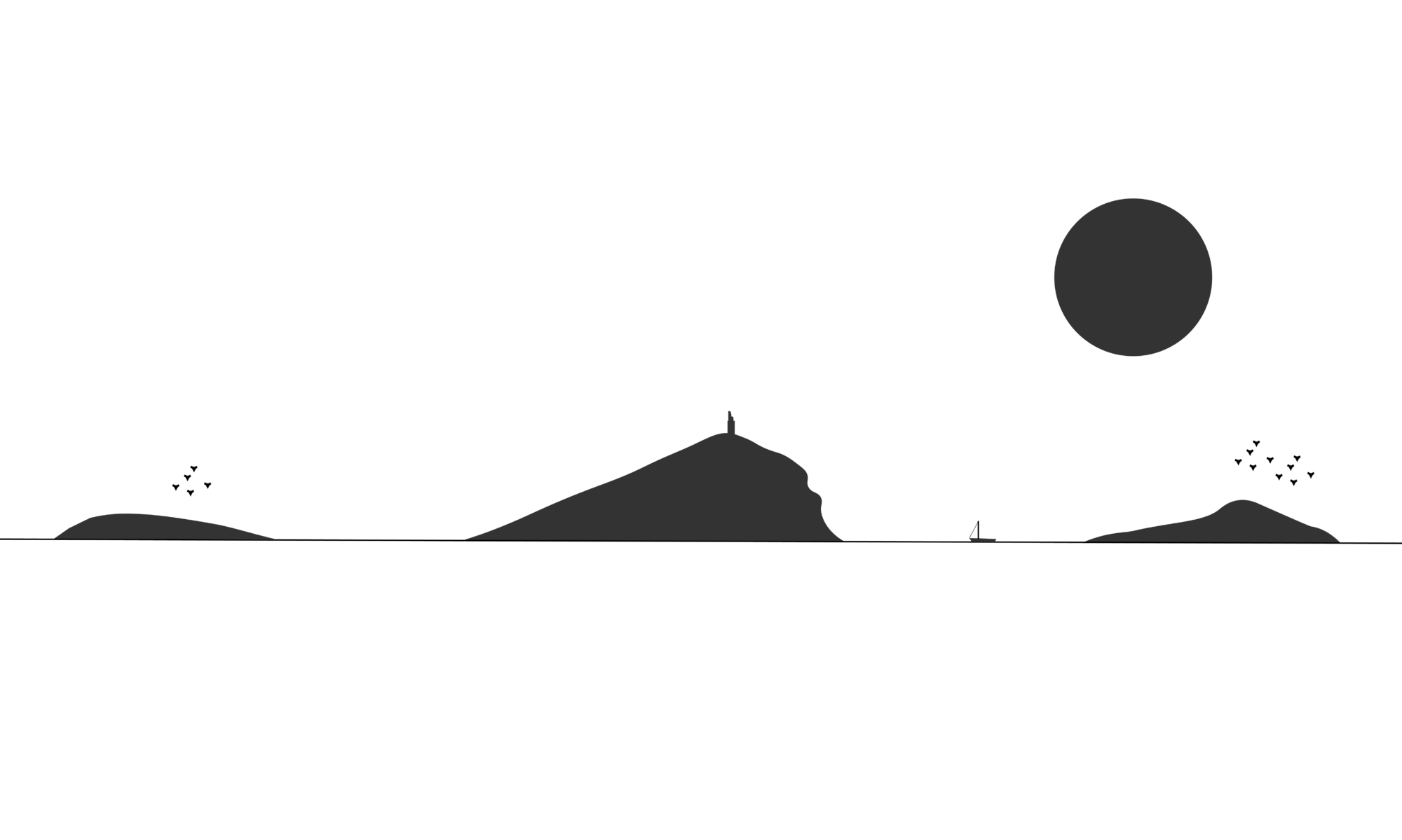As the semester really gets rolling along here in Toronto, the epic saga of the BEARS team member interview series continues! This week we’re bringing you a conversation with one of our founding graduate student team members, Elliott Fuller, who is also a PhD student in Classics and the Mediterranean Archaeology Collaborative Specialization (MACS) program at the U of T. In fact, Elliott is a foundational member of that program: a member of the inaugural MACS cohort, and the first Toronto Classics student to pursue his PhD with a research focus on the Late Bronze Age. Such pioneering bravery is to be commended, but Elliott is also well known as a master of all things Classics – he made the MACS faculty proud by absolutely crushing all of his Greek and Latin language exams, etc., over the last several years, and continues to prove that sometimes Bronze Agers are just better at everything. Speaking of superlatives, in last summer’s field season Elliott was unanimously voted “Best BEARS Beard” and also got the prize for finding the largest ‘sherd’ of pottery I’ve ever seen come from a survey project. He currently resides in Victoria, British Columbia, but I recently managed to catch him on Zoom for a chat about all things BEARS, archaeology, and pandemic hobbies.
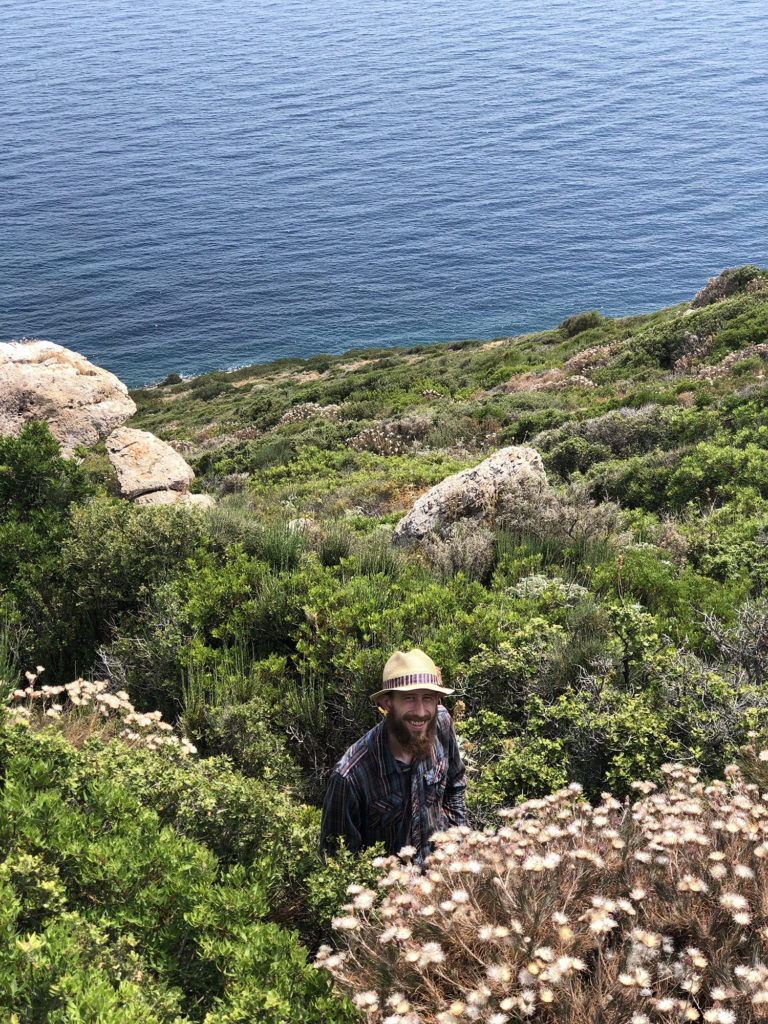
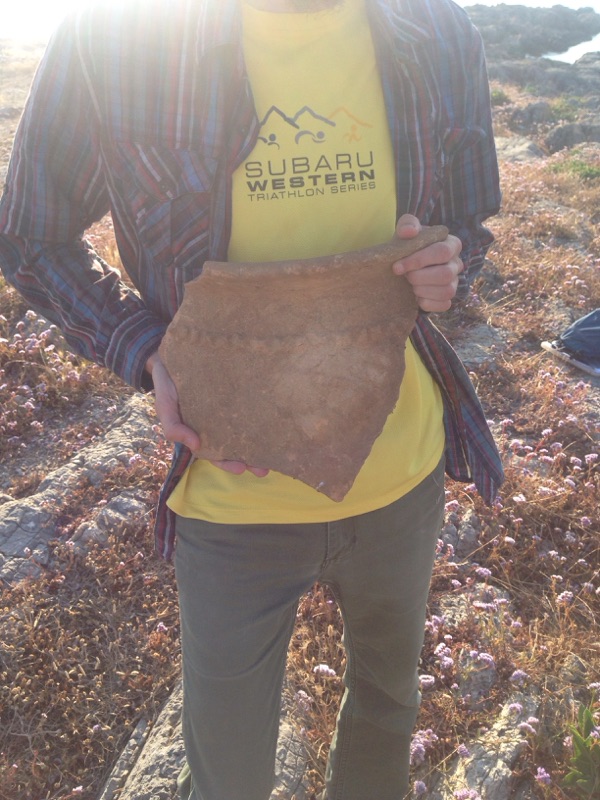
SCM: You are currently pursuing a PhD in the Classics department at the University of Toronto. Can you tell us what got you interested in Classics and why you decided to pursue a PhD in the subject?
EJF: When I was starting university, I thought I wanted to do anthropology, so I had signed up for intro courses in that, but I had some electives, so I took Latin as well. I had a really great Latin teacher, I was also very good at it , and I liked the challenge of learning a different language. It was also wonderful to learn about Roman culture through the language. But what really sealed it for me was that summer, after my first year, I went on a study tour of Greece Traveling in Greece for 4 weeks and seeing all of these sites and eating the food, was amazing. That was definitely what convinced me to do the Greek and Roman Studies degree at UVic.
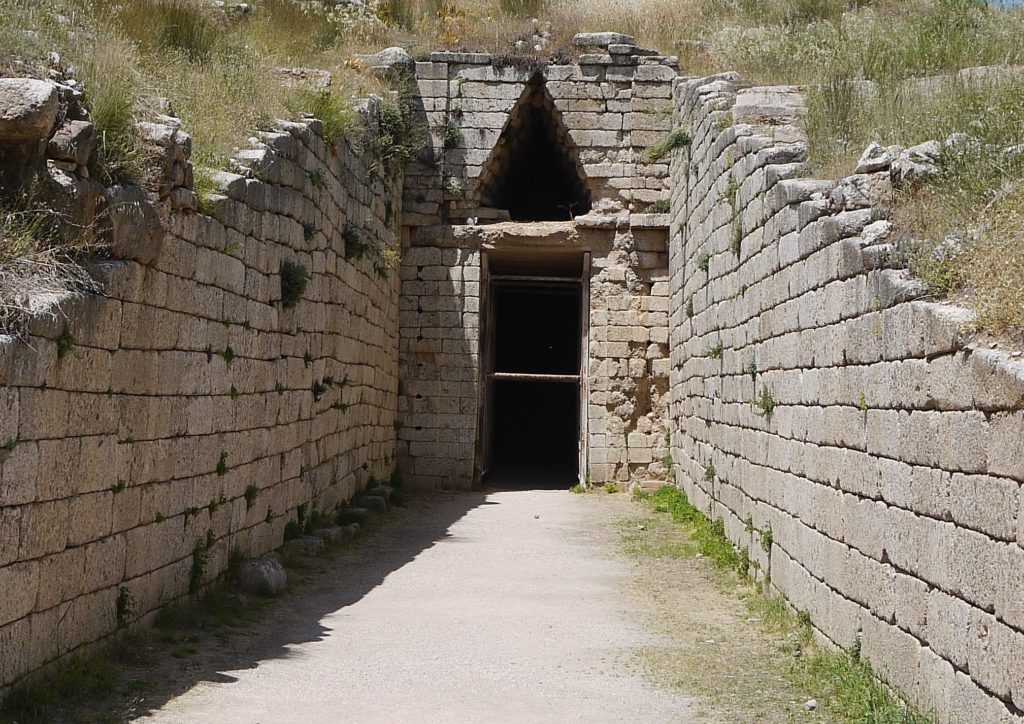
SCM: Very understandable! And you decided to continue on to the PhD for similar reasons?
EJF: I definitely had it in my mind that if I went on to grad school I could continue learning about this material that I really love and am interested in. And there is also continued potential to keep going to Greece and continuing to do archaeology. Then of course the dream is to eventually, not get paid to go to the Mediterranean, but at least get your expenses covered to do that continuing into the long term.
SCM: Yeah, I feel like we are on the same wavelength. I was certainly very motivated by the idea of spending as much time as possible in the Mediterranean when I veered towards academia/archaeology as a career. Now, you said that your entrée into the field was with Latin, but now you are doing something very different from studying Latin literature! What kind of research are you working on in your program, and how are you doing in terms of progressing through grad school at Toronto?
EJF: My research at the moment focuses on trade in the Aegean Bronze Age; that’s the broad topic. More specifically I am interested in trying to reconstruct the role of traders in Late Bronze Age society and looking at the role of coastal sites in exchanges and interactions that occur through commerce. I’m hoping to explore those things further in my major field exam, which is what I am working on right now. I’m currently making my way through the reading list for that. I’m hoping to also bring in some evidence from the eastern Mediterranean, including the texts from Ugarit, which deal a lot with merchants and traders. In general, I’m also very interested in what’s happening in the eastern Mediterranean.
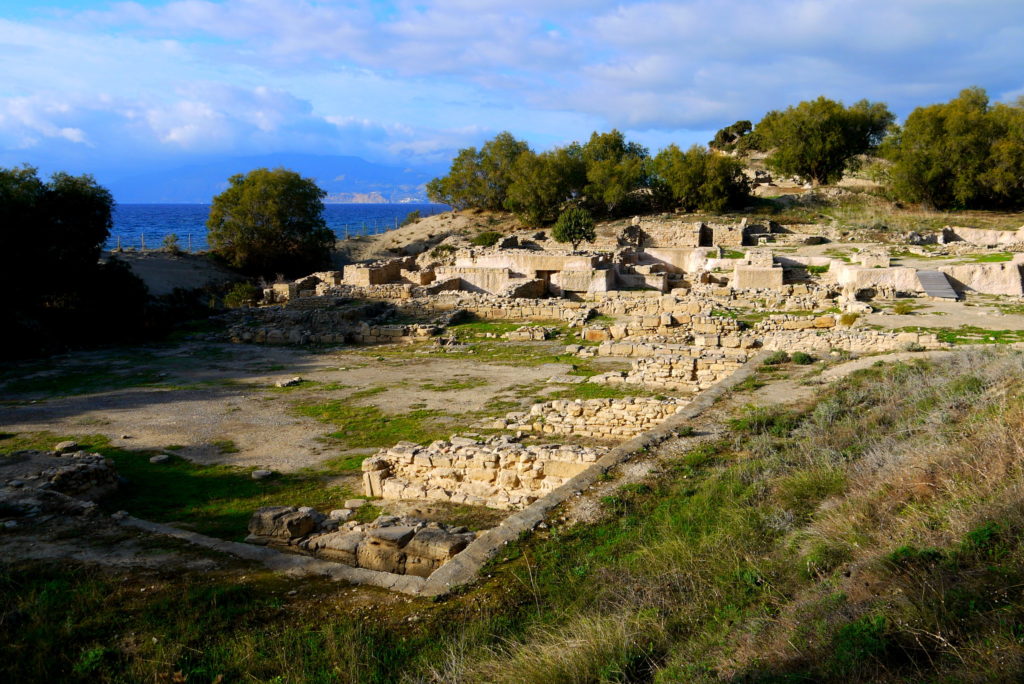
SCM: Interesting! And how did this come about, that you went from being good at Latin to getting bogged down in the crazy mixed up scholarly world of Late Bronze Age trade in the eastern Mediterranean?
EJF: I think it goes back again to the study tour I did in Greece with Brendan Burke. He works on the Aegean Bronze Age, specializing in textiles. He took us to all kinds of sites, but I think he had a particular passion for the Bronze Age sites, like Knossos and Mycenae, and that definitely impacted my interests. Something about seeing Mycenae and knowing how old it is but seeing also how monumental it is, that was really exciting to me. I ended up doing an honor’s thesis with the same professor, which was more on Iron Age material, on burials; but then I did an MA thesis on Bronze Age mortuary rituals. I also completed a program at the British School on Linear B, and wrote a short paper on inscribed stirrup jars, which is kind of how I got into the whole trade issue. In that paper I was looking at how these jars circulated and how some of them seem to misappropriated or end up not where one would really expect to find them. And that’s a direction I’m still going in my major field. I guess it’s kind of a convoluted trajectory.
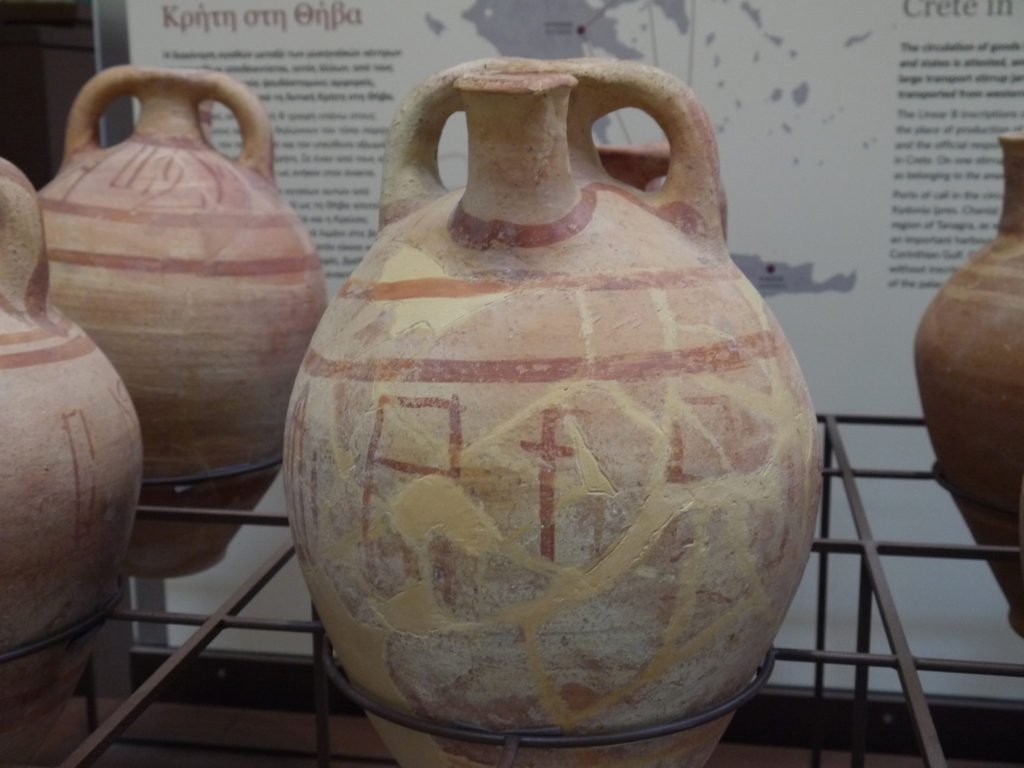
SCM: All good research trajectories are convoluted! What would be the fun in knowing where you are going to end up when you start a research project? To me it seems extremely strange when people actually end up working on what they said they would work on three years ago or whenever. To me that is just not the right way to do it!
I suppose you are now reaching the critical moment of academic life, when you will never be in a formal class again, or take many more exams. Looking back at the more formal stages of your program, what would you say has been your favorite or most valuable course or experience that you have taken in the program so far?
EJF: The initial stages where I was taking Greek and Latin prose comp and studying for the Greek and Latin exams were really intense and stressful, but that was also really productive. I learned Greek and Latin really well! That was an initial trial by fire – not so pleasant but very good to have done. Definitely one of the highlights was the MACS program and the seminar. That’s one of the things that drew me to Toronto, was the potential of studying the Mediterranean as a unit, and also from so many different perspectives and archaeological approaches. and then of course also the fieldwork component was obviously great – the BEARS season was amazing. So, I’d say definitely the entire MACS program has been the highlight of the PhD so far.
SCM: I hope you’re not just saying that because you think that’s what I want to hear!
EJF: I know, it sounds like flattery! But it’s all genuinely true!
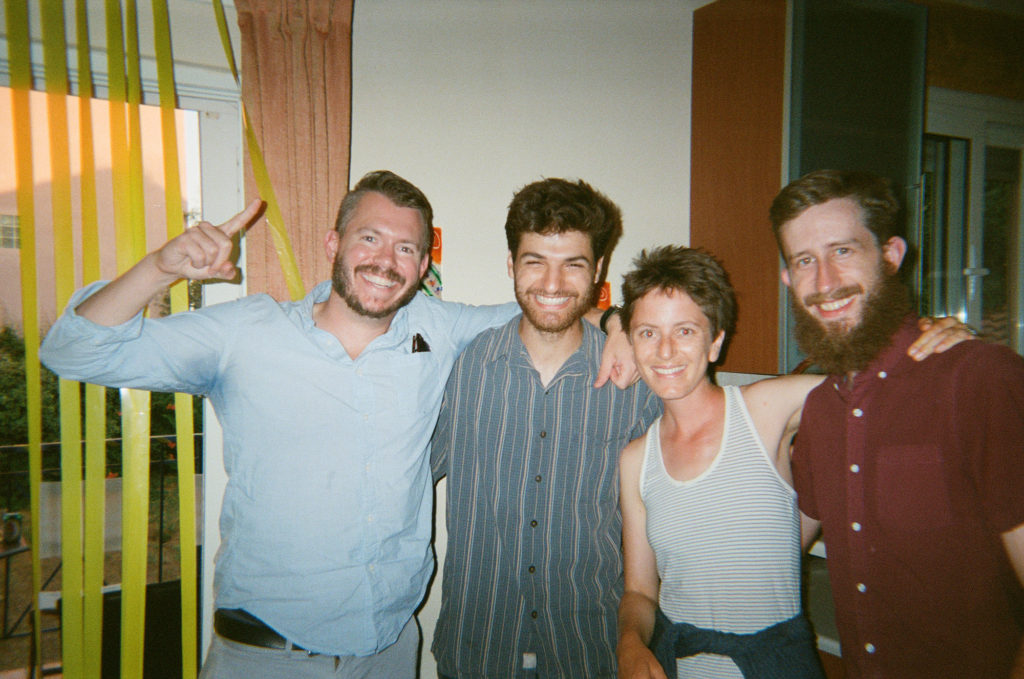
SCM: Well, it’s good to know that things went okay – you know you were in the very first year of that program, so you were the guinea pigs! But I’m glad you didn’t necessarily feel that way. Now, time to indulge your interviewer’s inane curiosities: you are a transplant to Toronto from the West Coast. I am still relatively new to this wonderful culture called Canada. Can you tell me the main differences that you see between West and East Coast Canadian culture? Are there clearly different cultures? Or is it just basically the weather?
EJF: Hmmmm, well, I think it’s definitely the weather, but there is also just a different feeling. Perhaps they’re related. Maybe the weather out west makes people more relaxed . But I’m not sure – there is something more than that. People in Victoria are really friendly and relaxed in a way that…. well, there are definitely people that are friendly in Toronto, but it seems like people are much more stressed and more career-driven . The weather in coastal BC is kind of Mediterranean. It’s hot and dry in the summer and then cool and wet in the winter. So, you don’t get the extreme cold temperatures in the winter, or these winters that seem to drag on forever, that make people with Seasonal Affective Disorder miserable, that kind of thing. Another difference is that in Victoria you are always really close to parks and lakes and the water, so it’s very easy to get out and be somewhere beautiful if you are stressed out or just want to escape the concrete jungle. Toronto has a lot of parks, but it’s a different scenario.
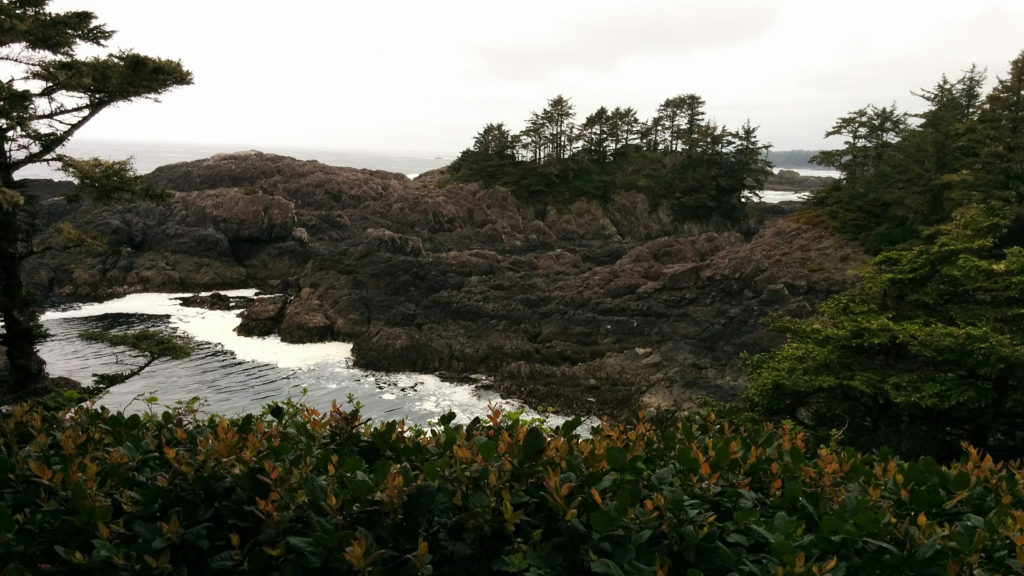
SCM: You have to be a little careful, because people might call you an environmental determinist! But, yeah, I hear what you are saying. Endless urban winters can drive anyone a little nuts. It’s an interesting answer too because it sounds a lot like what people would say to a similar question about east and west coast cities in the US. So maybe that is a vote in favor of your environmental determinism position. Same on both sides of the border. Now, you have also worked and traveled quite a bit in Greece: how about the major differences between Greece and Canada?
EJF: That’s somewhat tricky. For some reason whenever I land in Athens I am immediately filled with this sense of profound well-being. Maybe it’s related to the fact that when I am in Greece I don’t have the normal responsibilities that I have when I am home But it’s almost like an entirely different sensory experience. There are different smells and sights that you don’t have in Canadian cities. Everything in Athens seems more vivid somehow – stronger smells, louder noises, just more in general. In a good way! I think being in Greece is just generally amazing – the weather, the food – everything is so good. And you are so close to the water all of the time, there are beautiful beaches everywhere, and you have access to these remains of the ancient past. You can see and feel the long-term history of the place more immediately than you can here. Obviously, Canada has a long-term history, too, it’s just not as visible. I guess Greece just seems like a better place to be for any human in ways that are hard to describe.
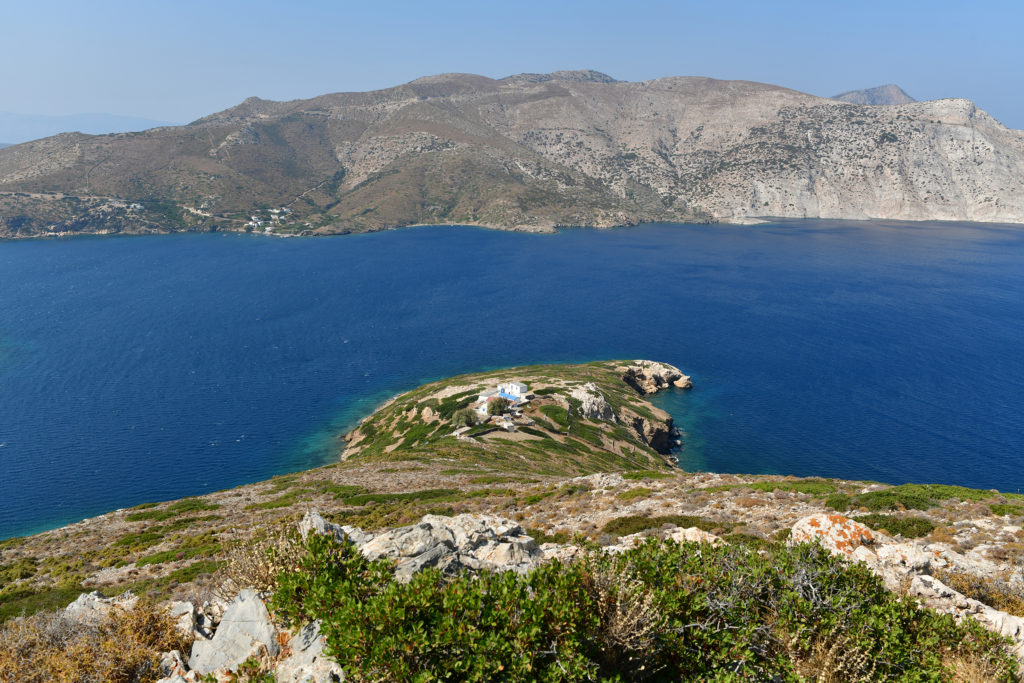
SCM: It is a feeling as much as anything; it is always challenging to articulate what a place really ‘feels’ like in a different place. I like your point about the smells. My favorite thing is when you are walking through a plateia early in the morning and there is a bakery nearby, and the smell of the wonderful things emerging from that bakery is so strong and so good. I love that smell so much. Someone needs to open a Greek bakery on my street in Toronto. My quality of life would increase immensely.
EJF: Yeah, totally! And there’s also this factor of having so many good and happy memories associated with those senses and smells too.
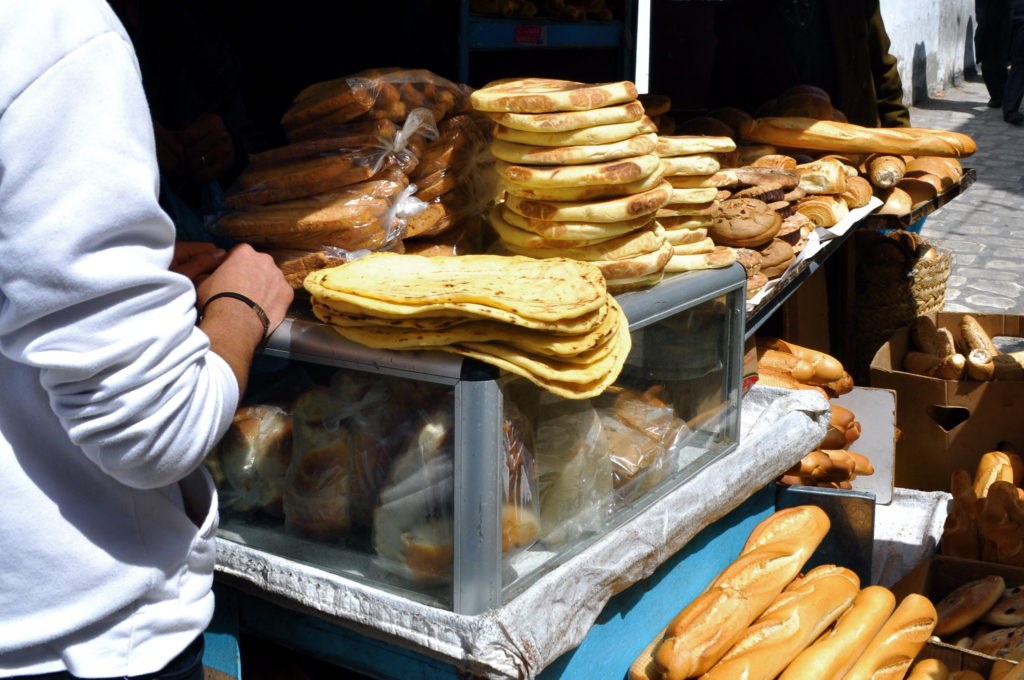
SCM: All of the best things seem to happen in the Mediterranean; that has been my experience! I think there is this other factor of people around you being happier, too, which tends to make one happy. I love that it’s okay to go out and sit for a coffee with your friends for 4-5 hours in the middle of the day and nobody is worried about it. In Toronto, I feel like peoples’ heads would explode!
EJF: Yeah, I love the way that life really circulates around socializing with friends and family there, rather than people molding the time for those human connections around and in between whatever arbitrary work tasks that we think are more important. In Greece, I think people are better at taking time to relax and talk with people they care about. I think that’s something we should probably do more of.
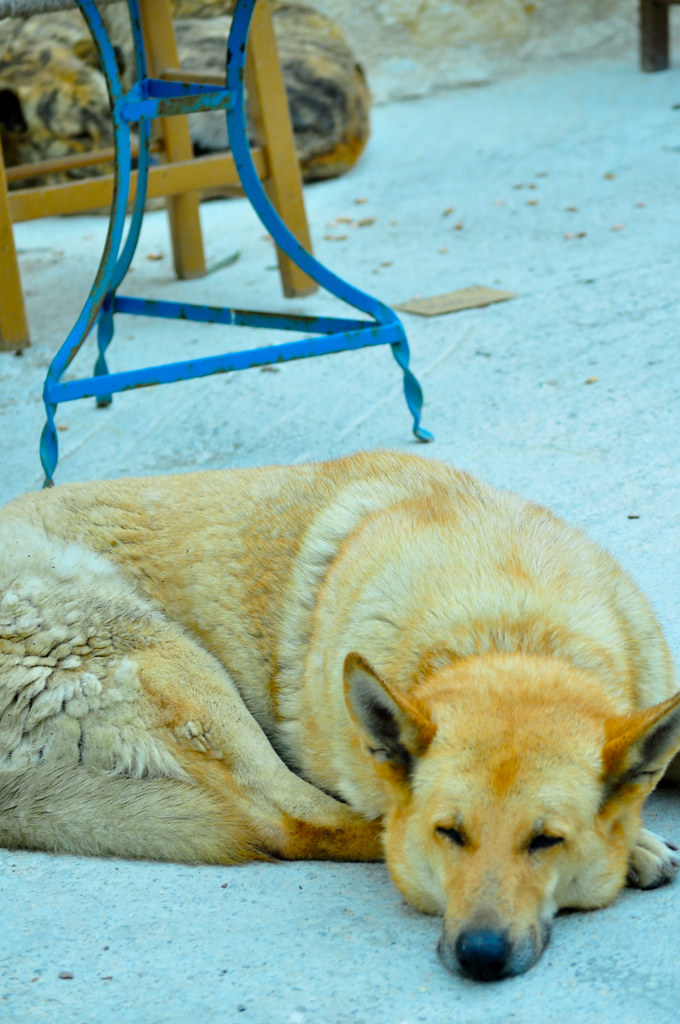
SCM: Even as something of an obsessive workaholic, I totally agree with you. Anyway, Greece is the best – unfortunately this summer most people in the field were not able to spend much time there, and certainly most actual fieldwork was canceled. However, last summer, of course, you came and worked on the BEARS project in Porto Rafti. What did you think about the BEARS project? How about the town of Porto Rafti as a place to live?
EJF: Well, in terms of living in Porto Rafti, one thing to say for sure is that our accommodations were amazing. I have been pretty lucky on projects to always have a roof over my head; I’ve never had to live in a tent or anything. But the BEARS houses were by far the swankiest place I’ve ever gotten to stay on a project, which obviously makes life more pleasant! Porto Rafti is a bit unusual compared to other Greek towns I’ve stayed in, just in terms of the way that the streets are organized. There aren’t a lot of sidewalks. We had to dodge a lot of cars sometimes. But the town itself is very beautiful and it is in a very beautiful place. I didn’t really get to know the place or explore it as much as I wanted to. Even though we had a very generous stipend, we mostly stayed in and cooked meals at home. I’m hoping that when we go back I will get out and see more of the scene in Porto Rafti. That’s the plan for 2021.
In terms of the experience, it was my first time doing survey, and my impression of survey was that you slog through fields and you maybe find a few battered sherds, and that is considered a victory. But BEARS was not like that! We were finding so much amazing pottery on the surface all of the time. Every day we would make a new spectacular find. That was obviously pretty exciting and very good for morale! It made for a really interesting and constantly surprising field season. I thought it was very cool that we had these sites in the same region, but each was from a totally different chronological time period and the assemblages of each were totally distinct from one another. It was fascinating to see how this one little corner of Greece had been used in so many different ways over this huge period of time. That to me is really interesting.
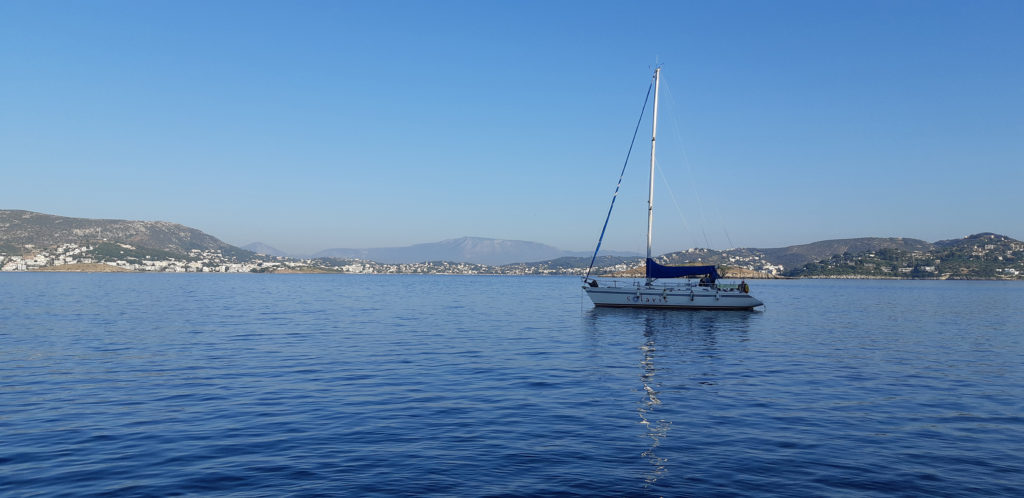
SCM: That is a good point! We have a huge diachronic range on these sites, but each site is totally distinct in how the landscape is being exploited and the types of artifacts that are abundant. So, everyone has a different strategy for dealing with a physical container that was pretty much the same through time, which must turn on different ways that people reacted to that landscape.
EJF: Yeah, and of course the big mystery is the whole situation with Late Bronze Age and Late Roman on the island. It seems like the two assemblages are pretty different from one another, but I wonder if the two groups were doing the same thing living out there.
SCM: I have some theories about that! But they shall remain secret for now. How about you, since you’re a Bronze Age scholar, what’s your best idea about how to explain what’s going on out on Raftis in the Bronze Age?
EJF: I don’t have the answer! It is really interesting, because the prevailing narrative, that this is a refuge of some kind, does not really make sense with the finds. It’s right after the collapse and people are fleeing, and they are hiding in these marginal environments…okay, but what is happening on Raftis does not seem to fit that. Because if you are fleeing for your life you would not have so much fancy cooking pottery and so many varieties of fancy painted pottery and ritual vessels. And the finds from Perati are quite dissonant with the idea of a refuge settlement too. I was just reading an article by Shelley Wachsmann arguing that the Pylos rower tablets refer to an orderly evacuation of the palace in boats, which I don’t really agree with. But one of the things he says is that nobody would take pottery with them in such a situation because it is just not so valuable. I guess by that logic if the people on Raftis were evacuating someplace else, then it would be strange that they had so much fancy stuff. Anyway, the point is that whatever is going on out there, I do not think these people fit into the normal definition we have of ‘refugees’ or the destitute escapees of some palatial disaster. Maybe there is an attempt, like at Tiryns, to retain some degree of the symbolic prestige of palatial life after the collapse, but obviously with Raftis they are moving to a completely new and typologically distinct physical space. It is all very peculiar!
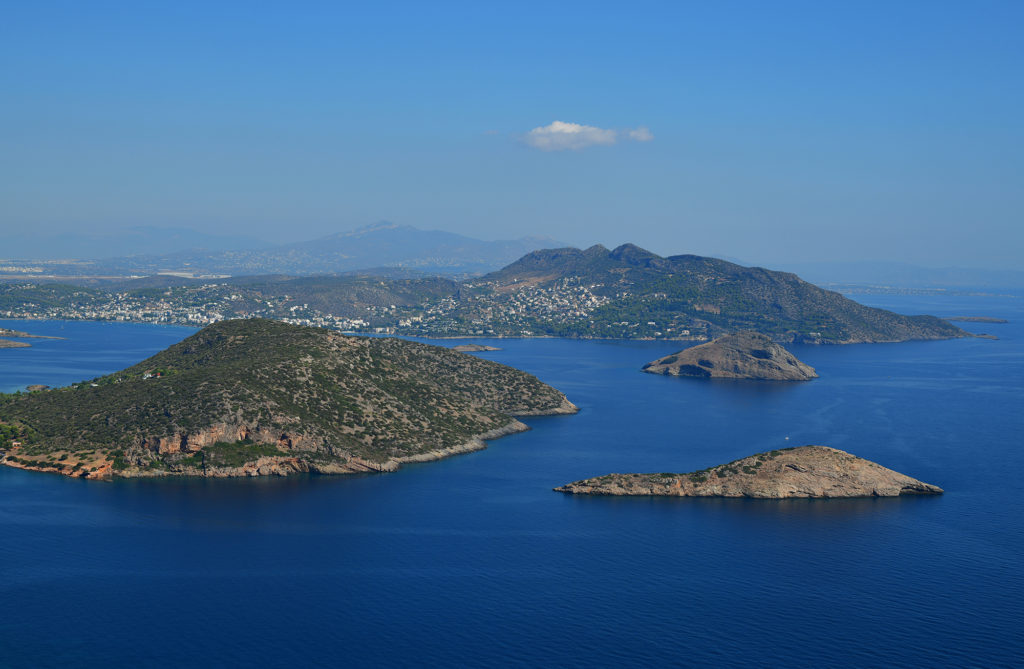
SCM: The enigma of Raftis continues – we’ll have to keep chewing on it through the next several years of work! Now, one major bummer of 2020 was that we couldn’t go to Greece to continue working on Raftis, but there have been many other ways in which 2020 has been very challenging/depressing. How about the flipside of that coin – are there any ways in which the pandemic or related restrictions have improved your life lately?
EJF: Actually, yeah. One thing that I found initially was that the situation led me to develop a very healthy routine, which I did not have before. I was running and exercising at home and doing things on a normal schedule. For example, we have a grocery store right across from our house, but instead of going there every couple of days to grab whatever, we would do one big shop once a week. I think that also helped us save money. In a weird way I think the lockdown made me a better person! Besides that, I have been getting a lot of knitting done – I have made a lot of new knit items, which has been good for my mental health. And it gets us ready for winter.
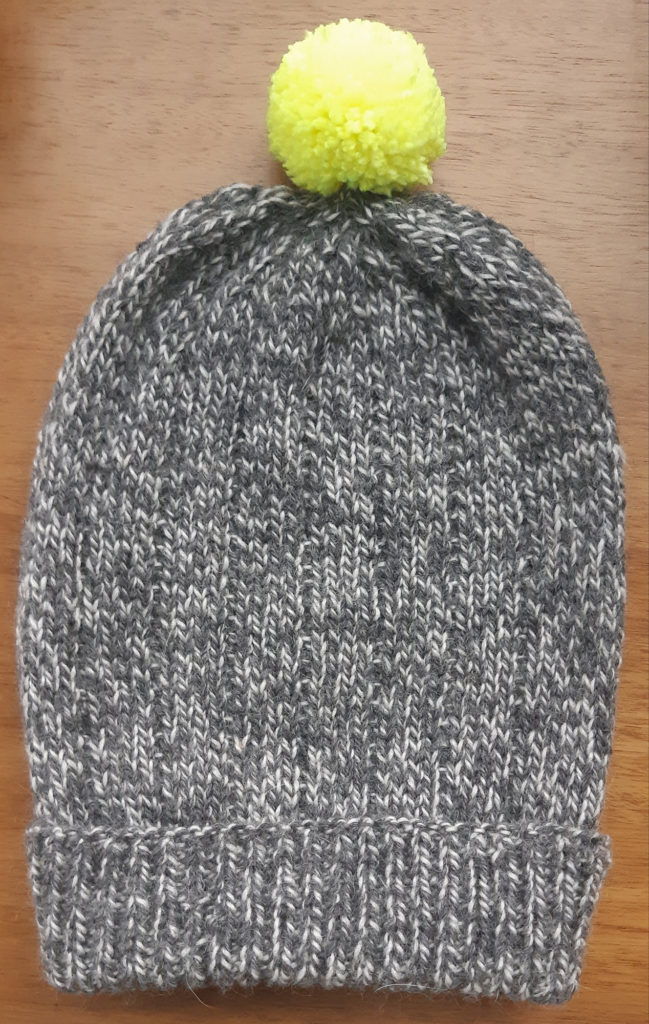
SCM: Wow, good for you! Talk about keeping a positive perspective – time for a healthy routine and a productive hobby. Sounds like you should start an advice column for those of us without such a great strategy. Let’s end on that positive note, I guess: thanks so much for talking with me today, and good luck with the knitting and reading!
